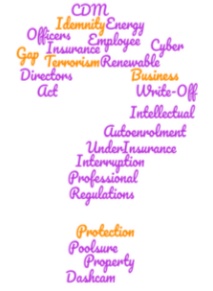
Employment law has always been a minefield and recent high profile court battles involving Uber and Pimlico Plumbers have just made it all the more complex....
…Lines have been blurred between the self employed and employed and the introduction of flexible working arrangements, supposedly to make it easier for the modern workforce, also seem to have further complicated already complex rules relating to employment benefits such as sick pay, holiday pay and parental leave.
One thing is clear – Employment disputes can be very costly when it all goes wrong. Thankfully, insurance protection is available to cover the cost of defending employment disputes and the resulting compensation awards when employers lose. Cover under these policies can be complicated and full of potential pitfalls preventing a claim payment. However, when properly arranged, and with firms being made fully aware of their obligations under the conditions of the insurance wording, Legal Expenses policies offer valuable protection.
The main issue with legal expenses policies is compliance with policy conditions relating to legal advice. With some policies it may be once a problem emerges, whereas with others it may be a requirement before you start any dismissal, redundancy or disciplinary action.
The requirement to take advice from a helpline can work well for some firms and form part of their HR management but, for others, insurance is an afterthought and on many occasions claims are first reported well down the legal path and even after a court case has been lost.
Many firms will only want to use their own solicitors for advice. However, whether this is acceptable will vary from insurer to insurer and firms will need their insurer’s agreement before incurring legal costs.
Policies will generally be subject to a ‘reasonable prospect of success’ clause, which can be a cause of contention. However, if firms have followed the advice of their insurer’s lawyer it’s harder for the insurer to drop a claim.
Policies generally exclude wilful or reckless disregard of legislation and TUPE, as well as a possible waiting period of up to 180 days before certain covers become effective.
In short, cover can vary enormously. Whilst many commercial policies provide legal expenses cover as an automatic add on, some just provide a legal helpline. Others will just cover legal defence costs, rather than cover compensation awards if you lose and a good option is to consider a specialist legal expenses policy to include contract and property disputes, tax investigation and criminal defence cover.
Employment Practices Liability policies are also available to provide cover for employment legal disputes. Whilst they are not subject to the ‘reasonable prospect of success’ restriction, or prescriptive requirements regarding taking legal advise, these policies are generally aimed at larger companies with their own HR departments.
You have to watch the fine print with all insurances, but never more so than legal expenses, so take advice before you buy.


Recent Comments